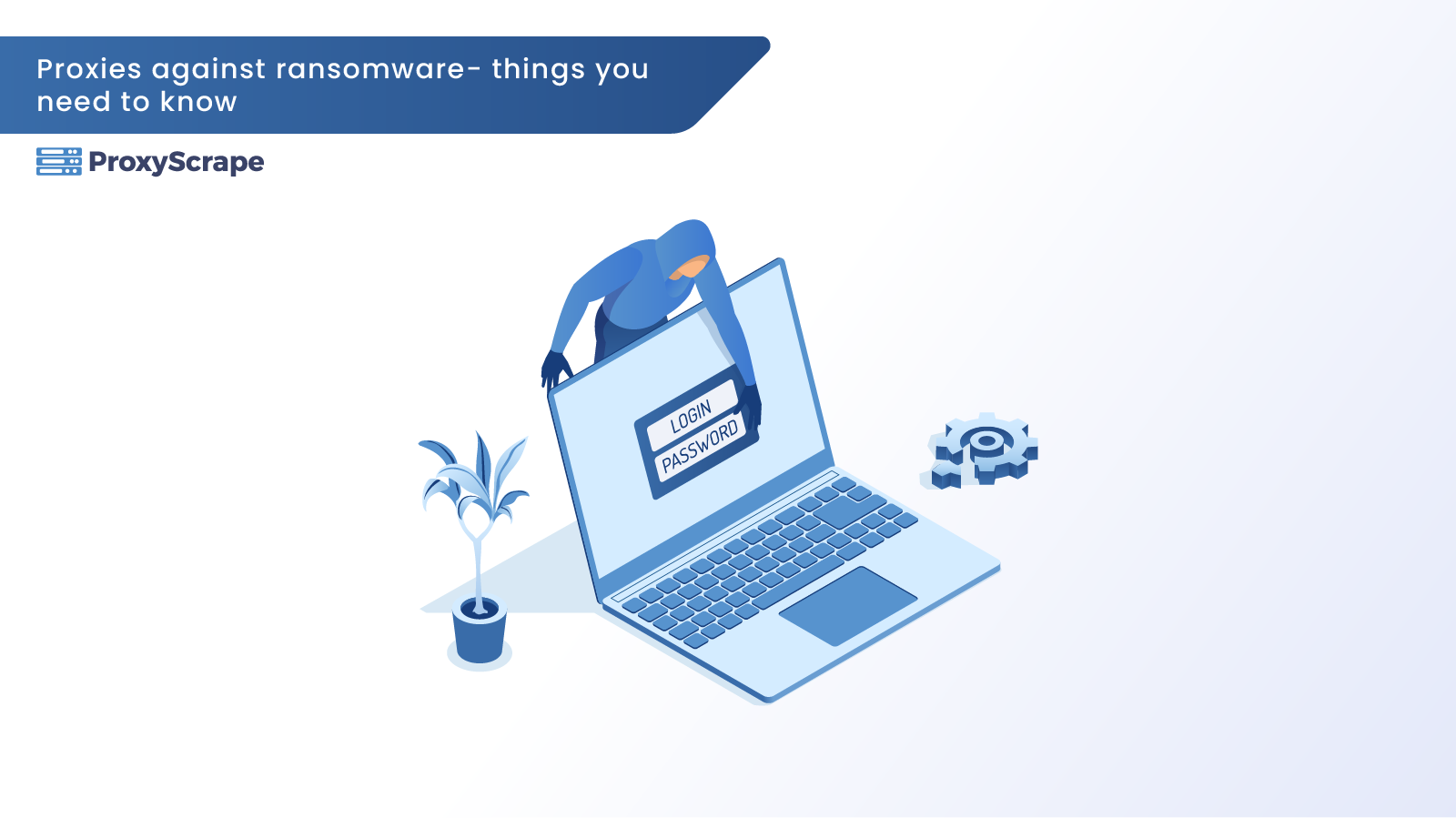Proxies Against Ransomware – Major Things to Know in 2026

Proxies against ransomware– Is it viable or not? Did you know that, according to Statista, the average cost of a data breach worldwide is about $3.68 million? The scary part is that the organization’s one preventive measure is taking out an insurance policy of about $20 billion. Every day, more people face cybercrime, and some
Proxies against ransomware– Is it viable or not?
Did you know that, according to Statista, the average cost of a data breach worldwide is about $3.68 million? The scary part is that the organization’s one preventive measure is taking out an insurance policy of about $20 billion. Every day, more people face cybercrime, and some even lose their livelihoods. The governments of several countries take several measures, such as dedicated national cyber security agencies, infrastructure, and various awareness programs.
Most people in the world carry out their day-to-day work through a computer. This is the window to steal people’s sensitive information. The most problematic actions in cyber threats are ransomware attacks. As mentioned, governments are taking action, but we, the people, should also take action against cybercrime. The first step towards that is configuring your computer with a proxy.
In the upcoming sections, we will see what ransomware attacks are and how effective proxies against ransomware can be.
Feel free to jump to any section to learn more about proxies against ransomware.
How to Prevent Ransomware Attacks?
The Best Proxy Against Ransomware:
What Is a Ransomware Attack?
Simply put, ransomware is a malicious programming script, also known as malware, which threatens users into paying money by blocking access to data in their local system or publishing their personal information online.
These types of attacks are becoming typical these days, usually happening without warning. Imagine this scenario. A user is working on their laptop like any other regular day.
Suddenly, they get a message, such as “We have blocked your access to data on your local system. Pay {some amount} of money to retrieve your access.” You will likely be shocked and not know what to do in that situation. This situation is common in multinational companies all over the world.
This type of cyberattack is time-sensitive, meaning that cybercriminals threaten the user to pay the money before the time runs out. If the time runs out, cybercriminals revoke user access and publicly share the user’s personal information.
Who Is at Risk?

Cybercriminals Targeting Victims
The answer is, maybe everybody. There is no definite answer to this because nowadays, technology has taken over the world. Most people on Earth have started using smartphones, tablets, and laptops daily. Every device connecting to the internet is at risk of ransomware attacks. Ransomware works based on the network system.
A computer network that belongs to a local network will affect the particular device and every device connecting to that network. Ransomware scans the computer, encrypts all the essential and sensitive information, and keeps the user from accessing it.
Two of the primary reasons for getting hacked are one, using public wifi services, and two, working remotely. People tend to use free wifi services in coffee shops and other places. This acts as a node for attackers to scan devices in the network to identify potential victims.
Working remotely is the second reason, and the global pandemic paved the way for that. Usually, home internet security features compared to an organization’s cybersecurity features are significantly inferior. When connecting to a home network server, you can be attacked. Due to your remote work equipment being infected with malware, the office devices will likely be affected, significantly impacting the whole organization.
How to Prevent Ransomware Attacks?
The answer to the question is that it is challenging to prevent ransomware attacks. The reason is anonymity. Anonymity is a double-edged sword. It can help you mask your identity online and prevent you from getting hacked, but it can also hide cyber attackers’ identities online, allowing them to steal people’s information. That is the irony of the situation.
The government needs anonymity to prevent such attacks. Still, if they use it for their purposes, people may start to think that the government itself is spying on others and breaking the trust between the people and the government.
We can take the first step toward preventing cyber-attacks by using proxy servers.
Proxies Against Ransomware:
A proxy server is an intermediary between you (the client system) and the target source. Here, the target source is a website,r blog, or any other internet activity you are doing. Any request from you will pass through the proxy servers and reach the target source. This way, your original IP (Internet Protocol) address is hidden, and your online presence is masked. Simply put, a proxy will act as the firewall to monitor incoming online information.
Even if the malware enters the internet, it will likely affect the proxy servers instead of your local systems.
The organization will have more sophisticated countermeasures, such as proxy servers with a centralized patch management system that helps monitor the systems’ health in real time and protect every endpoint (URLs).
The Best Proxy Against Ransomware:
ProxyScrape is one of the best proxy providers online. ProxyScrape offers three high-quality services: residential, dedicated, and premium proxies. Let’s see what these services provide:
- Dedicated proxies – Dedicated datacenter proxies are best suited for high-speed online tasks, such as streaming high-quality geo-restricted content. The dedicated datacenter proxy servers are the best solution when you need unlimited bandwidth and concurrent connections. With 99.9% uptime, you can rest easy that you will get the smoothest proxy experience. You are the sole user in a dedicated proxy, meaning no one can share your proxy IP addresses.
- Premium proxies – Premium proxies have the same functionality as dedicated proxies. The only difference is that in premium proxies, the proxies list can be accessed by other users in the same network server, meaning that the proxy IP addresses are shared with other users.
- Residential proxies are best suited for high-demanding tasks like web scraping, SEO monitoring, and market analysis. Since it resembles the original IP address provided by the ISP (Internet Service Provider), the target will likely have a difficult time seeing whether they are using proxy servers or not. With seven million+ proxies in the proxy pool, you can be assured that you will not run out of proxies. All the proxies are rotating proxies, meaning whenever you connect to the network, you are provided with a new IP address.
Now you know some of the basic features of ProxyScrape’s three services. The best proxy server against ransomware is a dedicated datacenter and residential proxies. These proxies can also help you with other cyberattacks, such as DDoS (Distributed Denial of Service), email phishing, and identity theft.
FAQs:
FAQs:
1. Can proxy servers help prevent malware from entering your systems?
2. Do cyberattackers also use proxy servers?
3. Is a firewall the same as a proxy?
Conclusion:
In this article, we have explored proxies against ransomware and how proxy servers are the first step to preventing cyberattacks. Cyberattacks are becoming increasingly frequent nowadays, ranging from small-scale to large-scale attacks. Government and organizations are taking severe measures against cyberattacks, especially ransomware. FBI and other agencies ask people not to pay the ransom to discourage the ransomware cycle. Start using proxies against ransomware and join the fight against cyberattacks.